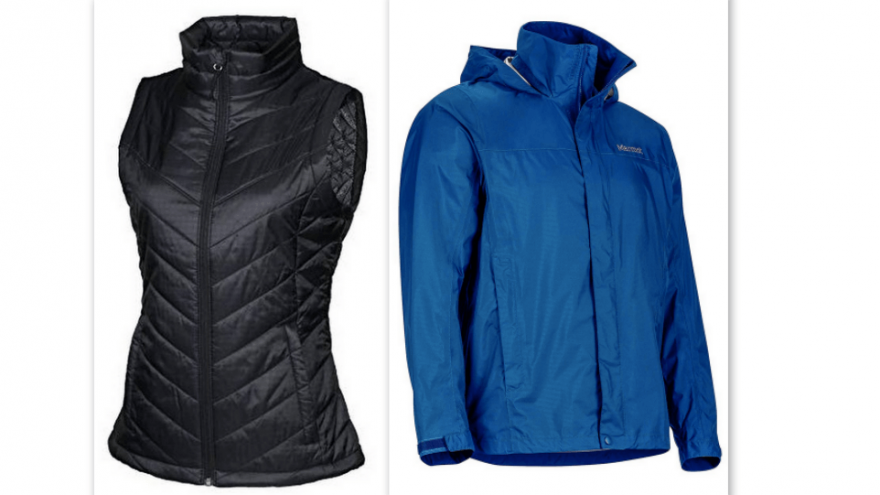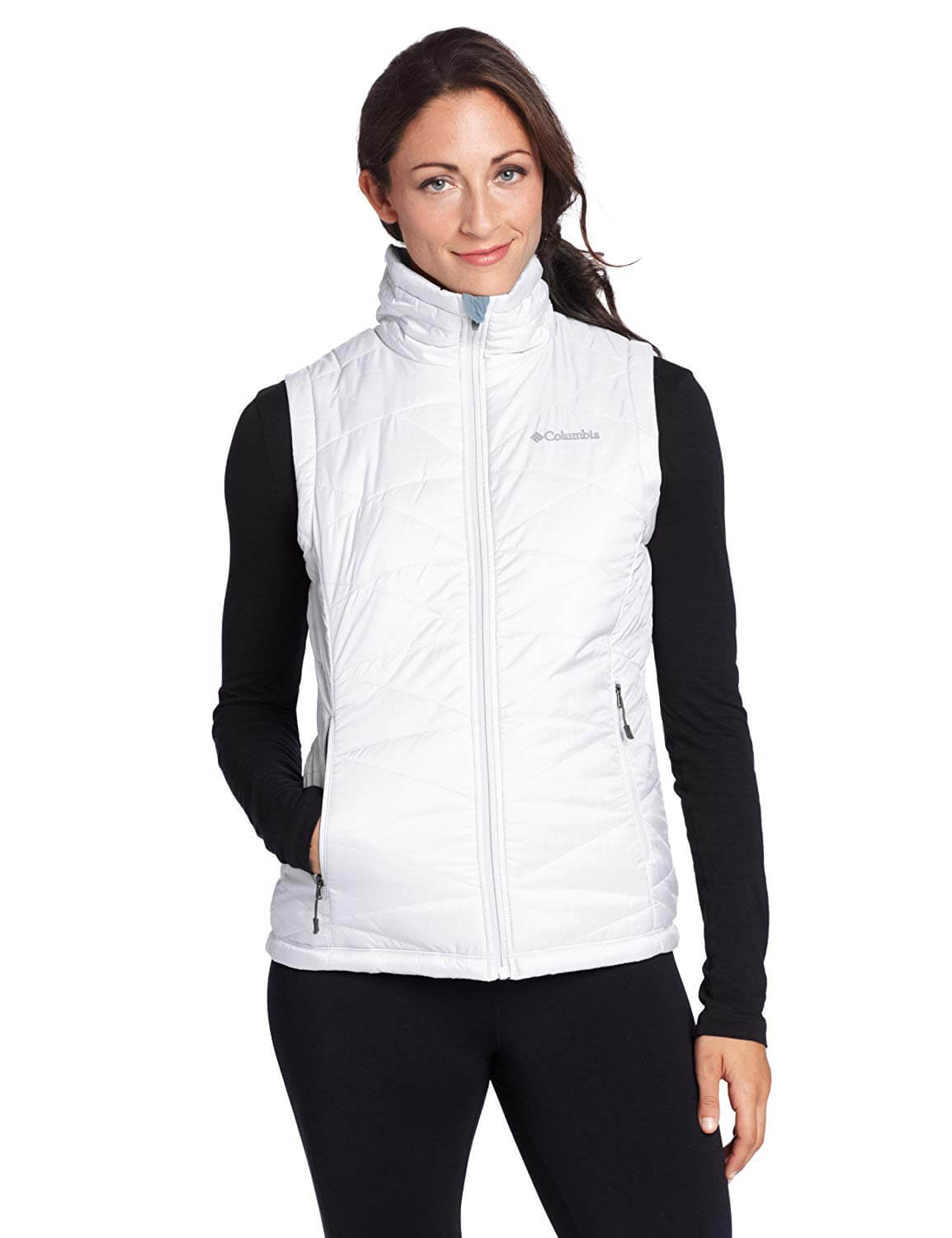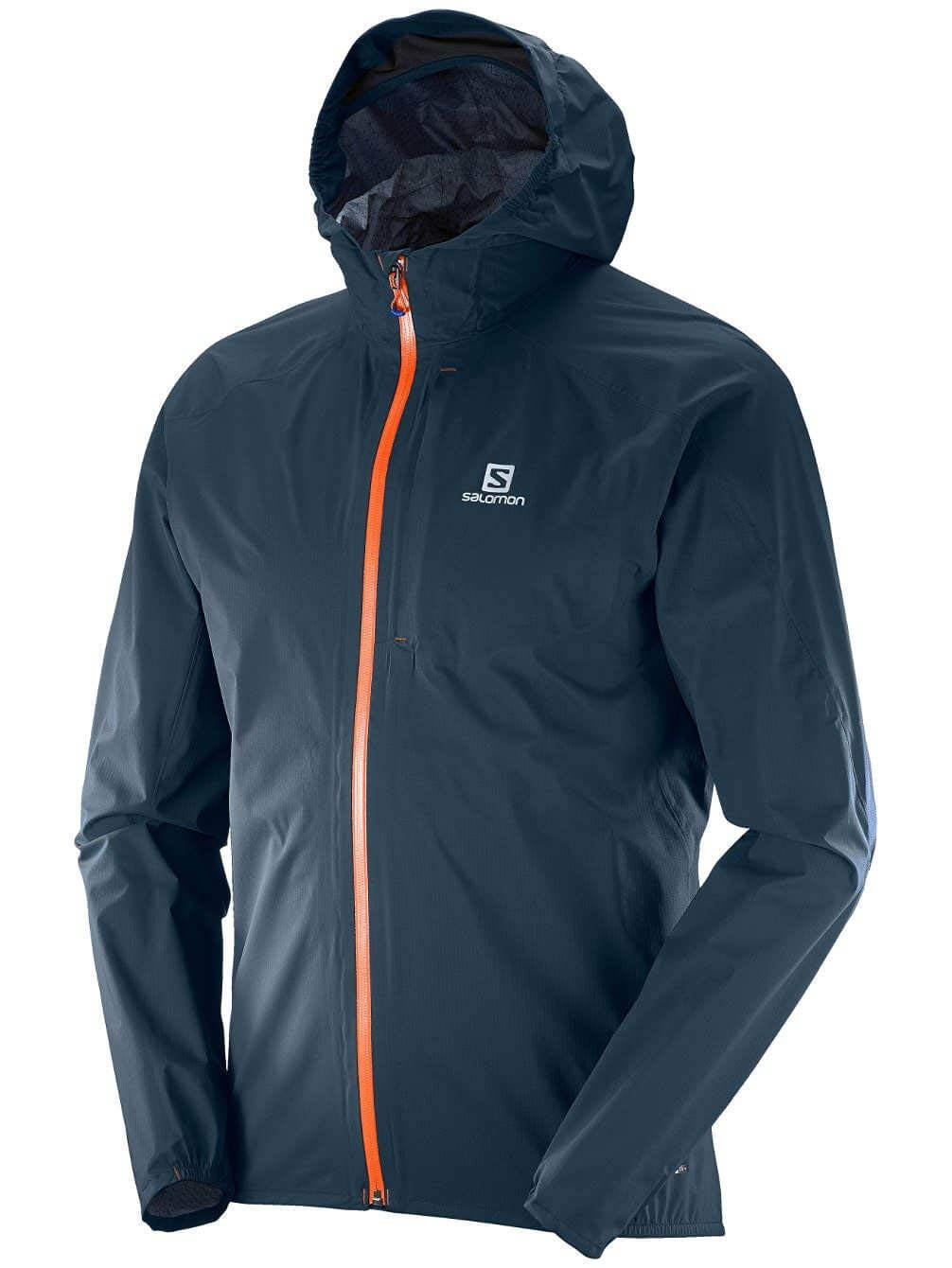Running Vests vs. Jackets: Which To Wear For Winter Runs

It’s easy to brave the cold when it means getting to be outside and running. But we already know the importance of layering up and having the right winter running gear to make not only our runs comfortable and enjoyable but also safe. And as we layer up for those colder winter running days, many of us reach for our favorite running vest. Many of us go to our favorite running jacket. Which leads us into one of the biggest debates when it comes to cold weather gear. The running vest or jacket for winter runs?
The choice is solely based on preference. However, each article of clothing has its own pros and cons. Many runners have both options in their closet for their picking. Comfort plays a major role in whether or not a person is team running vest vs. team running jacket. Price is another huge factor. Just remember that getting out to run is priceless.
When To Wear A Jacket Or Vest
Colder temperatures call for extra layers. In the fall many of us can get away with just running in a long sleeve shirt. But once the temperature drops, it’s time to put on the running pullover, soft-shell jacket or vest.
Some need the extra layer or warmth in temperatures 50 degrees F to the 40s. Once it’s closer to 40 degrees and lower, it’s absolutely time to wear a running jacket or vest.

Just keep in mind that once we get moving, our body temperature rises and we might get hot mid-run. That’s why some prefer a lightweight jacket that is easy to take off and tie around the waist.
However, in 30 degrees and colder that lightweight running jacket isn’t cutting it for some. That’s where a vest shines. These are typically warmer (insulated and puffer options) while allowing for ventilation for the arms that are covered with just the long sleeve.
Anything colder than 30 degrees requires a mid-layer. This means having a base layer, a second shirt, then a jacket or vest.
Take into consideration that the amount of insulation and thus warmth varies on the materials used in the clothing. For example, there are thin and lightweight vests. This means it might not be best for those freezing cold days.
The Great Debate: Running Vests vs. Running Jackets
The choice between a vest or jacket is an individual one. It’s a good idea to have both options so that one can be worn on a chilly run whereas the other is for more colder runs. A word of advice to do is some homework before buying to find out what runners love and hate about the article of clothing. This helps to narrow down which one better suits the runners needs. For example, if they don’t live in a place where it gets freezing cold that insulated vest might not be a worthy investment. A rainproof jacket might be best for those who live in those rainy and snowy climates.
We put the two types of outer layers against each other to see how they stack up.
The Running Vest
The running vest can be a versatile option for those who enjoy outdoor activities from long walks to hikes, camping, and more. But most importantly they are great for running in cold weather. This is a popular option the colder days that require some layers, but not cold enough for there to be snow.

Vests keep the core warm so that the body remains nice and toasty when outdoors. Without sleeves, it’s ideal for ventilation, but not for rainy runs.
There are many different options from stretchy soft shells that are thin and breathable. There are thicker puffer vests with more insulation. Some that have water-resistant finishes. And others can even pack into itself to take it out and store when the runner gets too warm.
Pros
- Keeps the core warm.
- Super versatile based on the material.
This makes it all runners need for cooler runs that require more than a t-shirt. It also makes it a go-to for extra insulation when buying a thicker option. - Options sold by all major activewear brands that are reputable choices for a mid-range price of about $100.
There are also many options sold by smaller companies and even Amazon for more affordable prices.
Cons
- Depending on the option, can be too warm for milder weather.
- Harder to take off and store if it isn’t packable.
- Not the best for rain or snow, even options that are waterproof.
The Running Jacket
Referred to as the outer shell, running jackets come in many different styles, materials and amount of warmth. These are a better option for a drizzle or snowfall since the arms are covered. Think of this as the better option when it comes to weather protection.
The right lightweight jacket can be perfect for those brisker winter runs without getting the runner too warm. And if they do start to burn up, it’s easy to take off and tie around the waist.

Many prefer jackets because of its fit and ability to move more naturally when wearing it. Some have more pocket space compared to vests and include other features like a hood (some vests have).
There are options sold from all the big brands in various style and colors, as well as from smaller retailers. The price varies for a running jacket, some have cheap at $20 and most major brand name selling their options for around $100.
A running jacket is a clear winner for those who want to layer up and have the option to easily shed them.
Pros
- Better suited for windy, rainy, or snowy runs.
This includes better protection against these elements compared to a running vest. - Versatile option since it’s easy to take off.
This includes wrapping around the waist, packing it away into its pocket, lopping in on the hydration vest or belt comfortably.
Cons
- Lightweight options aren’t the best for warmth.
The runner still needs to layer up to be warm.
Sources
- , How to Dress for Running in Any Weather, Running Website
- , 10 Best Running Jackets Reviewed and Tested, Running Website
Latest Articles
 Is Running on a Treadmill Easier Than Running Outside?Runners have their own preferences, whether it is treadmill running, running outside on the road, or exploring trails. So...
Is Running on a Treadmill Easier Than Running Outside?Runners have their own preferences, whether it is treadmill running, running outside on the road, or exploring trails. So... Is It OK to Use Trail Running Shoes on the Road?While trail running shoes can be used on roads, especially in situations where a runner encounters mixed terrains or pref...
Is It OK to Use Trail Running Shoes on the Road?While trail running shoes can be used on roads, especially in situations where a runner encounters mixed terrains or pref... How to Fix Sore Quads After Running?Rest, ice, gentle stretching, and over-the-counter pain relievers can help soothe sore quads after running. Also, ensure ...
How to Fix Sore Quads After Running?Rest, ice, gentle stretching, and over-the-counter pain relievers can help soothe sore quads after running. Also, ensure ... 10 Fruits With The Most Electrolytes to Replace Sports DrinksThese fruits are high in electrolytes such as potassium, magnesium, and calcium, essential for hydration, muscle function...
10 Fruits With The Most Electrolytes to Replace Sports DrinksThese fruits are high in electrolytes such as potassium, magnesium, and calcium, essential for hydration, muscle function...

